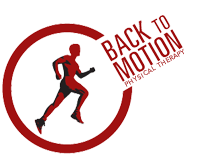Vestibular Therapy in Denver
Rehabilitation for Dizziness
Are you experiencing these symptoms? Lightheadedness, Dizziness, Vertigo, Nausea, Haziness when trying to concentrate. Blurry or double vision. Difficulty focusing while in motion.
These can be indication of inner ear (vestibular) dysfunction. Often overlooked by doctors.

When sitting in your car, have you suddenly felt as if you were moving backward, only to realize it was the car next to you moving forward?
That disorientation is caused by a mismatch between the three systems our bodies use for balance. The Inner Ear (vestibular system), Sense of Touch (telling our brain we’re standing still), and our Vision System (telling us we’re moving).
Most of us only experience this a few times in our lives. Some people, however, experience this disorientation on a daily basis.
If you are having this issue and live in the Denver area, call us today to see if Physical Therapy can help you.
Our brains coordinate vestibular information with our other senses to allow us to adjust for uneven terrain or to stay upright on a moving surface such as on a bus, boat or escalator.
Vestibular information is also used to coordinate eye and head motion to maintain focus on a moving object, or a still object when a person is moving – such as scanning items on a grocery store shelf while walking down the aisle.

Vestibular rehabilitation starts by determining where the issue is. A mechanical problem within the inner ear causing bad information to be sent. Or the brain is not processing it correctly.
This can be determined through a few simple tests.
The easiest dysfunction to treat is a mechanical issue referred to as benign positional vertigo (BPPV). This is caused by the crystals migrating from the inner ear’s main chamber into the semicircular canals and altering the signal sent to the brain.
A specific series of head positions performed with guidance from a physical therapist can coax the crystals back to their correct location.
While movement of these crystals during the maneuver can be disconcerting, the treatment often resolves the symptoms completely in only one to three visits.
This treatment is three fold.
First, functioning aspects of the vestibular system are strengthened with specific exercises such as eye and head motion.
Second, the brain is trained to compensate for losses or information discrepancies through eye, head and body motion.
And third, the sense of balance from our joints is strengthened to provide additional feedback to the brain to reorient the patient to their environment.
While BPPV treatment can seem “miraculous,” most vestibular rehabilitation is slow and often makes people feel worse Before feeling better. The brain cannot be forced to suddenly change but must be gently conditioned.
The endeavor, however, is rewarding with increased control, improved concentration, and a greater comfort level when in the community.
There will also be decreased head and neck pain caused by the muscles attempt to restrict motion.
The goal of vestibular rehabilitation is to restore a sense of control—control over one’s body, one’s environment and one’s life.
